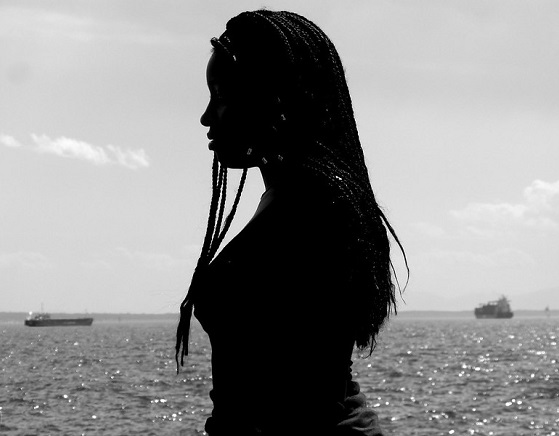You Are the Goddess Aphrodite, Awaken to Her Power.

{source}
It is no secret and painfully obvious to any woman that feminine sensuality and sexuality were hijacked along with the whole idea of the Goddess.
What it means to be a sensually empowered woman has been defined for us by a generation of patriarchs who have oppressed humanity for too long. And by humanity, I mean both women and men. In more modern times, this idea has been defined by the media, by Hollywood (which runs this mad place anyway) in a most devious way.
Then, of course, comes the fashion industry, which, again, defines women and their beauty in extremely limiting ways that damage lives, self-image, drains the joy of life away, or even stymies the possibility of being a beautiful and sensually empowered woman.
Where did this madness start?
While researching, I found an enlightening essay by Susan Hawthorne, The Homeric Hymn of Aphrodite. In it, Hawthorne traces the original archetype of Aphrodite as the powerful goddess of love and beauty whose power even Zeus was afraid of, but who was gradually disempowered. The stories of the all-powerful Aphrodite were, no doubt, told and written by someone else.
From a position of power, she moved into one of ridicule, trapped by her own desires, in need of and begging Zeus for help. In modern terms, she became the Marilyn Monroe of Olympus: beautiful, disempowered and demeaned.
Let me share some stories of both disempowerment and empowerment from my past.
To start with, I have always admired sexy goddesses and their power. As a young girl, I loved Brigitte Bardot and Marlene Dietrich, as I must have felt that they, although sexual, were also powerful in their sensuality and defiance and how it was framed.
I was not born an Aphrodite. At least not how she became to be defined. I was a shy girl. Not one empowered by her beauty. Not one who was tall and very slim. For a long time, and especially in my pre-teens, I had no sense of myself until the big shame happened in our family and my father left my mother for another woman. I was nine at the time, and our larger family disowned us.
My mother’s whole self-esteem depended on my father’s status. I was told I would turn into a criminal as a child from a broken home.
My grandmother lovingly weaved my blonde hair into two braids, which made me look even younger than I was. In the horrid spectacle of my mother’s shame, my grandmother’s presence was a refuge. She was a peaceful harbor when everything around me was falling apart, and we rather rapidly moved from apposition of relative wealth to poverty.
But I had my books and I had my mother’s friends, Roman and Lena, a bohemian couple with a great library which was always open for me. I had my mind but I did not have my body. Or, at least, I was not aware it.
If I were to look back at myself as I was back then, I would see a shy and very smart girl with two blonde braids, a girl with enormous green eyes, with no sense of fashion (it did not matter anyway, as Poland was falling apart and there was neither money nor things to buy).
That did not bother me. The lack of sense of my body. My books would save me and sustain me until, of course, my body was framed by others and shamed.
I distinctly remember how my mother and her female friend asked me to stand next to her friend’s daughter and compared me to the girl. I remember standing there in my little girl’s dress (it was red, I think) with my white tights and my new shoes, which I thought were very pretty, and how I, gradually, began to hide behind the chair which was standing between us to hide the shame of my body.
I was in my early teens then, and did not know that I had a body and if it was pretty or ugly until that day. I heard the two women talk about us (the other girl and me) and I sensed my mum’s desire to find her lost confidence by having a friendship with that other woman who, unlike her, seemed to handle her situation as a divorcee in a much better way.
So, unwittingly and innocently, guided by her own loss of identity as a married woman, she offered me as a sacrificial lamb on the altar of that friendship that would save her from loneliness and shaming by her own family.
Moving quietly backward behind the chair which I hoped would save me from complete disgrace, I heard the two women pronounce their verdict: I did not have a dancer’s legs, my knees were not well-shaped, my calves were too muscular and I moved without grace. The other girl, of course, had dancer’s legs — perfect knees and all — and moved with grace.
I do not judge the two women. Not anymore. My mother was desperate for a friend and knew no better. I do not even think any malice was intended. It was, for them, just a fair judgement of what was.
In a strange way, this reminds me of a much more well-known mythical event, the Judgment of Paris, where young Paris (albeit a mortal) judged the three powerful goddesses Athena, Hera and Aphrodite and chose the most beautiful one. What gave him that power, that right, I would like to ask, to judge a goddess?
A few years later, I left communist Poland for Paris, in search of the beauty of art and the beauty of words. This was a beauty which I have learned about from Roman and Lena’s library and my mother’s stories of artists who had lived in the city. I wanted to breathe the air which Simone de Beauvoir had breathed, to dance in the La Rotonde Café where Modigliani had danced, to write in a café, as Hemmingway once had.
As a refugee from Eastern Europe with an expired visa and big dreams of becoming a writer, I wanted all of this and more.
Once in Paris, whose beauty did not disappoint me, I met an upper-class French girl who studied Slavic languages and needed my help to pass an exam. She was very generous and we became close friends. Like myself, she did not think herself to be beautiful — a great crime in Paris for a French girl from a good home.
We both fasted fiercely to meet that distant ideal of being a dark-haired, very slim girl in a beret. That French look we were told men loved.
It was in her posh apartment on Boulevard Saint-Michel that I had my first Aphrodite experience.
My friend held an impromptu party with her French friends, and I was invited. Excited, I arrived early to help her to get ready. We were chatting, the beautiful, huge windows of her apartment were open to the street in the legendary district of Paris. It was summer and we were dancing to Bizet’s Carmen at full blast.
A phone rang and I heard my friend telling someone that her new friend (me) was going to be there. A young male voice asked, “Is she pretty?” Again, as my mum and her friend had done in the past, she, without any malice intended, looked at me and in her mind compared me to that ideal we both fell short of — the ideal of the very slim, tall, dark-haired girl — and said, “No.”
I was not offended in the least because by then I was certain it was true.
So when her friends came, I was happy and chatty, practicing my French but also spending some time by the bookshelf as more and more young very slim and very tall girls kept arriving. Most of them had arrived together after a photoshoot from their modeling class.
As I was lovingly perusing the pages of a book of Baudelaire’s poems, I glanced at the very slim girls sipping their herbal teas, chatting freely with the men in the room, and remembered how my grandmother had once asked me to cover myself up before we were going to leave for the Sunday Mass because my breasts looked indecent and were simply rude.
What was I going to do with my rude breasts now in front of these perfect girls?
Since I had nothing to lose, I asked an elegant young French man what time it was, as I was planning to leave. Suddenly, not only the gorgeous man but a few other men in the room as well, came up to me and said that it was far too early for me to leave the party and they asked me in the most charming way to please stay a little longer.
This was a moment, still powerfully imprinted in my memory, when Aphrodite rose from her disgrace with a sense that from that point on she was going to define her own beauty and find her own power.
It was not so much that the men wanted me to stay but rather the realization that I could be seen differently. It made me realize that I could see myself differently as well. That nothing about me is set in stone. That it is I, and I alone, who can rearrange the mosaic not only of my own perceptions of myself but also of other people’s perceptions of me. That the first judgment of Paris can be reversed.
What does it mean to possess real power over your body, aside from defining your own beauty?
It is to be fully in charge of it.
It is also in knowing when not to use it. But that does not mean you can’t play with it. On your own terms.
This is how I see the rise of Aphrodite, and it is not that different from the rise of Mary Magdalene. What has been edited, what has been ridiculed and shamed, what has been lied about, now comes into its own power.
Like every woman, I carry the line of goddesses within me, the ones who whisper in every woman’s ear:
You are so much more than who you were told you are.
You are so much more beautiful than who you believe you are.
Your beauty is not defined by anyone else but you.
You are in your power, regardless of how old you are.
You are the Goddess Aphrodite, awaken again to her power.
You are the Goddess Sophia on the way back to her power.
Walk that path.
***
Dr. Joanna Kujawa is the author of ‘Journaling to Manifest the Lost Goddess in Your Life’ and ‘Jerusalem Diary: Searching for the Tomb and House of Jesus’, and many short stories, essays and academic pieces. She sees herself as a Spiritual Detective who asks difficult questions about spirituality, such as ‘Can spirituality and sexuality be experienced as one?’, ‘Who was the real Mary Magdalene?’, ‘How can we include eco-spirituality in our belief systems?’ and ‘How can we bring back the Divine Feminine to create a more balanced and interconnected world?’ Her goal is to create and participate in the shift in consciousness about spirituality, our connection to nature, and our place in the Universe. She has PhD from Monash University, and MA and BA from the University of Toronto. She is immoderately passionate about her Goddess News blog. You could connect with her via her website, Facebook, Twitter or YouTube.


